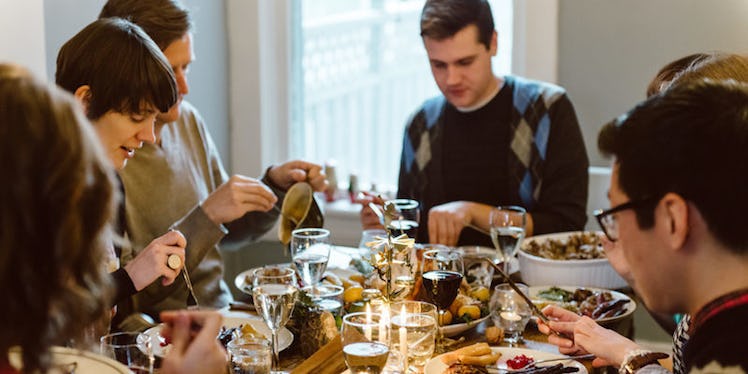
5 Things You Learn When You're The Only Liberal In A Conservative Family
I grew up in the San Francisco Bay Area with two Republican parents and an extended family aligned with the Tea Party. I had the best childhood, but, as I got older, one thing set me apart from most of my family.
I had the best childhood, but as I got older, one thing set me apart from most of my family. Nature, not nurture, shaped my political views.
I went to a small, liberal high school and eventually found myself alienated politically from most of my family members -- even my younger brother -- by the time I was a teenager.
The contrast put my beliefs into perspective pretty quickly.
It forced me to grow up, and it’s given me a fair amount of stories. I would not have had it any other way.
Here are five realities of the life I live, politically isolated from my closest loved ones:
1. You get gag gifts mocking your beliefs.
One Christmas, in our family’s annual white elephant gift exchange, I unwrapped a roll of toilet paper covered with black and white photos of President Obama.
This gift was not directed to me as an insult. In fact, that year, nobody in my family or extended family really knew I leaned liberal.
Instead of airing thoughts, I laughed along with the crowd and placed the gift aside.
I was in a stage of denial. I didn’t want to enter into an argument, or have my family feel like I had a problem with their politics.
2. Family dinners often end in a heated debate.
As I grew up, I began to voice my opinions with my immediate family.
I would casually mention my support for Obama during the 2012 presidential race, or comment on the Fox News programs that bothered me, or the CNN coverage that sparked controversy.
My mom and brother began to understand pretty quickly that I was left leaning, and would often start debate at the dinner table when the family was together.
These debates tested and strengthened my beliefs, and weren’t as hostile as I had originally feared.
3. Questions about who you voted for are often sarcastic.
Once my family knew about my politics, they were relentless in making sure they mentioned it.
Comments about how I was stubborn on minimum wage issues, or issues of war and peace were annoying and exhausting at first.
But I was given the opportunity, in a low stakes setting, to argue and stand up for myself.
I distinguished myself from my parents’ influence at a fairly young age.
I started my school’s debate team, and was extremely comfortable raising questions and opinions in class. It was a quality my high school classmates grew to admire.
4. You try desperately to avoid discussion with your extended family.
I was not as comfortable exchanging with my extended family with similar candor. I wanted respect from my grandparents especially.
Political debate, I feared, would drive a wrench into a relationship that only thrived at large family dinners.
I’m convinced my parents have shared some of the information about my political beliefs to my grandparents.
So far, they have not brought it up. And I’m okay with that.
My political beliefs don’t define my relationship with my parents, and they should not define my relationship with my extended family.
Because I have such a limited time per year with my extended family, I would never want to spend it in debate.
5. You have more perspective and tolerance than anyone else.
Through my experiences with political differences, I have learned the upmost tolerance.
Despite my difference of opinion with family, I could not love them any more.
Politics don’t define people, they shape people.
I love and am shaped by the world around me, just as my parents are, just in a different way.
I have a capacity for debate without frustration, and a desire to hear and learn from people from all different backgrounds because of the practice I have had with family and friends.
Difference has shaped who I am.